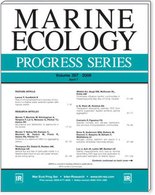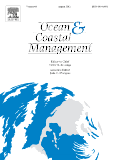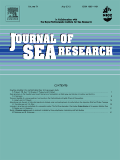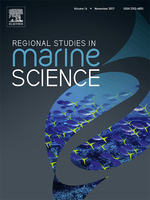
Frontiers in Marine Science
Scope & Guideline
Advancing Understanding of Our Ocean Ecosystems
Introduction
Aims and Scopes
- Marine Biodiversity and Conservation:
Focuses on understanding the diversity of marine species and ecosystems, their ecological roles, and the conservation strategies necessary to protect them from anthropogenic pressures. - Ecosystem Functioning and Services:
Investigates the functioning of marine ecosystems, including the services they provide, such as carbon sequestration, nutrient cycling, and habitat provision, and how these are affected by environmental changes. - Climate Change and Ocean Dynamics:
Studies the impacts of climate change on marine environments, including ocean acidification, warming, and extreme weather events, and how these factors influence marine life and ecosystems. - Marine Pollution and Environmental Management:
Examines the sources, impacts, and mitigation strategies for various pollutants in marine environments, including plastics, heavy metals, and nutrient run-off. - Aquaculture and Fisheries Science:
Explores sustainable practices in aquaculture and fisheries management, addressing issues related to overfishing, habitat degradation, and the socio-economic dimensions of marine resource use. - Technological Innovations in Marine Science:
Focuses on the application of new technologies, including remote sensing, machine learning, and genomic tools, to enhance marine research, monitoring, and conservation efforts.
Trending and Emerging
- Marine Climate Change Adaptation:
Research focusing on adaptation strategies for marine ecosystems in response to climate change is gaining traction, highlighting the need for resilience in marine species and ecosystems. - Microplastics and Marine Pollution:
The study of microplastics and their ecological impacts has surged, reflecting increasing public and scientific concern over plastic pollution in marine environments. - Ecosystem-Based Fisheries Management:
There is a notable trend towards adopting ecosystem-based management practices in fisheries, emphasizing the need to consider ecological interactions and sustainability in fishery practices. - Biodiversity and Ecosystem Services Valuation:
Research that quantifies the value of marine biodiversity and the ecosystem services it provides is increasingly important, driving policy and management decisions. - Technological Integration in Marine Research:
The incorporation of advanced technologies, such as remote sensing, artificial intelligence, and genomic tools, is on the rise, enhancing the ability to study and understand marine systems. - Indigenous Knowledge and Community Engagement:
There is a growing emphasis on integrating indigenous knowledge and community perspectives in marine conservation and management efforts, recognizing the value of local expertise.
Declining or Waning
- Traditional Fishing Practices:
Research on traditional fishing methods and their ecological impacts has decreased as attention shifts towards more sustainable and innovative fishing practices that prioritize ecosystem health. - Basic Taxonomic Studies:
There is a noticeable decline in purely taxonomic studies focusing on species identification and classification, as the field moves toward integrative approaches that combine molecular techniques with ecological and evolutionary perspectives. - In-Situ Environmental Impact Assessments:
Studies solely focused on in-situ assessments without integrating broader ecological or socio-economic contexts are becoming less common, as interdisciplinary approaches gain prominence. - Single-Species Focus Research:
Research that concentrates exclusively on single species without considering their ecological interactions or the broader ecosystem context has waned, reflecting a shift towards ecosystem-based management approaches. - Localized Case Studies:
There is a trend away from localized case studies that do not contribute to broader ecological or global marine science discussions, as researchers increasingly aim for findings that have wider applicability.
Similar Journals

Ocean Science Journal
Pioneering Research for Our Blue PlanetOcean Science Journal, published by the Korea Institute of Ocean Science and Technology (KIOST), is a pivotal resource for scholars and practitioners in the field of oceanography. With the ISSN 1738-5261 and E-ISSN 2005-7172, this journal presents cutting-edge research from 2006 to 2024, bridging fundamental and applied ocean sciences. Based in South Korea, with its headquarters located in Busan, the journal has achieved a commendable Scopus rank of #72 out of 145 in the domain of Earth and Planetary Sciences, placing it in the 50th percentile among peer publications. Classified in the Q3 category of the 2023 Oceanography rankings, Ocean Science Journal offers a platform for innovative studies that advance understanding of marine environments and promote sustainable ocean practices. While it does not operate under an open access model, readers and contributors can expect high-quality, peer-reviewed material that addresses pressing oceanic challenges and developments. This journal serves as an essential tool for researchers, professionals, and students committed to fostering marine science and ocean technology.

Indian Journal of Geo-Marine Sciences
Empowering Global Research in Marine SciencesThe Indian Journal of Geo-Marine Sciences, published by the NATIONAL INSTITUTE OF SCIENCE COMMUNICATION & INFORMATICS (NISCAIR), serves as a vital platform dedicated to the dissemination and advancement of knowledge in the field of marine and geosciences. As an open-access journal, it allows for improved visibility and accessibility of research findings to a global audience, enabling researchers, professionals, and students to share insights into oceanography and related disciplines. With a publication history spanning from 2007 to 2010 and continuing from 2012 to 2024, it has established itself within the academic community as a reliable source of innovative research, despite being classified in Q4 of Oceanography and holding a Scopus rank that places it in the 27th percentile. This journal is particularly relevant for those investigating marine ecosystems, geological oceanography, and their interconnections, thus playing an essential role in fostering understanding and communication within this important area of scientific inquiry.

Ocean and Coastal Research
Empowering researchers to protect our blue planet.Ocean and Coastal Research, published by the Institute Oceanográfico of the University of São Paulo, is an essential academic journal dedicated to advancing the fields of Aquatic Science, Oceanography, and Water Science and Technology. Established in 2020, the journal has quickly become a noteworthy platform contributing to the understanding and sustainable management of marine and coastal ecosystems, with an open access model that promotes the dissemination of critical research findings. Although currently categorized in the fourth quartile across its respective fields in 2023, the journal serves as an emerging repository of valuable insights for researchers, professionals, and students alike, aiming to make impactful discoveries that address contemporary challenges in ocean conservation and resource management. The journal's editorial team is committed to fostering interdisciplinary collaboration and upholding rigorous peer-review standards, thereby ensuring high-quality contributions that reflect the dynamic nature of marine science. With an E-ISSN of 2675-2824, all access to published articles is freely available, supporting global research efforts addressing crucial environmental issues.

MARINE ECOLOGY PROGRESS SERIES
Unveiling the secrets of marine life.MARINE ECOLOGY PROGRESS SERIES, published by INTER-RESEARCH in Germany, is a premier journal dedicated to advancing the field of marine ecology. Renowned for its rigorous peer-review process and high-quality publications, it holds a Q1 ranking in various categories including Aquatic Science and Ecology according to the 2023 category quartiles. With an impressive Scopus ranking, the journal is positioned in the 80th percentile within the Ecology, Evolution, Behavior and Systematics field, attesting to its significant impact in marine research. Covering a broad scope from basic ecological research to applied marine science, MARINE ECOLOGY PROGRESS SERIES aims to facilitate scientific exchange and promote the understanding of marine ecosystems. Researchers and professionals looking to stay abreast of the latest developments and findings in marine ecology will find this journal indispensable for enhancing their knowledge and contributing to ongoing discussions in the field.

Journal of Marine Science and Technology-Taiwan
Pioneering insights into the marine world.The Journal of Marine Science and Technology-Taiwan, published by Nant Taiwan Ocean University, is a pivotal academic platform dedicated to the advancement of knowledge in the fields of marine science and engineering. With an ISSN of 1023-2796 and E-ISSN 2709-6998, this journal spans a wide array of topics relevant to the study and application of marine technology from 1998 to 2024. It ranks in the Q3 quartile in major categories such as Mechanical Engineering, Mechanics of Materials, and Ocean Engineering, illustrating its growing influence and the breadth of research it encompasses. Although currently not an open access journal, it provides critical insights to researchers, professionals, and students alike, making significant contributions to the understanding of marine environments and technologies. As the journal continues to evolve, its commitment to high-quality, impactful research remains central to its mission, empowering scholars to drive innovation in the dynamic field of marine science.

OCEAN & COASTAL MANAGEMENT
Innovating Solutions for Coastal ManagementOCEAN & COASTAL MANAGEMENT is a premier journal dedicated to the multifaceted fields of oceanography, aquatic science, and coastal management. Published by ELSEVIER SCI LTD and located in the United Kingdom, this esteemed journal boasts a remarkable Q1 ranking in prestigious categories, including Aquatic Science and Oceanography, reflecting its influential contributions to the field since its inception in 1992. The journal is recognized for its high impact, boasting a commendable presence in Scopus rankings across related disciplines, with notable placements in the 94th percentile for Aquatic Science and 92nd percentile for Oceanography. Although it operates under a subscription model, OCEAN & COASTAL MANAGEMENT continues to serve as a vital resource for researchers, professionals, and students seeking to advance their understanding of coastal ecosystems and effective management strategies. Through rigorous peer-reviewed research, the journal aims to foster knowledge exchange and practical applications in policy-making and environmental stewardship, making it an essential read for anyone engaged in the preservation and sustainable use of oceanic resources.

JOURNAL OF SEA RESEARCH
Fostering Interdisciplinary Insights in Marine ResearchJOURNAL OF SEA RESEARCH, published by Elsevier, is a premier academic journal dedicated to advancing knowledge in the fields of aquatic science, ecology, and oceanography. Since its inception in 1996, this journal has provided a vital platform for researchers and professionals to disseminate groundbreaking findings and promote fostering interdisciplinary discussions. With its impressive Q2 ranking in multiple categories, including Aquatic Science and Ecology, Evolution, Behavior and Systematics, it positions itself as a significant contributor to marine and environmental studies. The journal is accessible in both print (ISSN: 1385-1101) and online formats (E-ISSN: 1873-1414), ensuring wide reach and engagement within the scholarly community. Researchers and students alike will find the journal not only a reliable source of information but also a source of inspiration for future explorations. With a commitment to quality and a broad scope that spans fundamental to applied research, JOURNAL OF SEA RESEARCH remains an indispensable resource for understanding the complexities of marine environments and their relevance to our changing world.

AFRICAN JOURNAL OF MARINE SCIENCE
Exploring the depths of aquatic science in Africa.AFRICAN JOURNAL OF MARINE SCIENCE is a premier academic journal dedicated to advancing the field of aquatic sciences and ecological studies, published by Taylor & Francis Ltd. Established in 2003 and based in South Africa, this journal provides a vital platform for researchers, professionals, and students interested in the diverse and dynamic marine ecosystems of Africa. With an impressive impact factor reflected in its Q2 quartile ranking in both Aquatic Science and Ecology, Evolution, Behavior and Systematics categories, the journal showcases innovative research that addresses pressing environmental challenges. Open access options facilitate broad dissemination of knowledge, ensuring that cutting-edge findings are accessible to all stakeholders in the marine research community. As it converges towards its impressive milestone year of 2024, the AFRICAN JOURNAL OF MARINE SCIENCE serves as an essential resource for fostering scientific discourse and collaboration across the continent and beyond.

JOURNAL OF OCEANOGRAPHY
Unveiling the Secrets Beneath the WavesJOURNAL OF OCEANOGRAPHY, published by Springer, stands as a leading academic journal in the field, with an impressive Q1 ranking in Oceanography for 2023. Since its inception in 1992, this journal has dedicated itself to the dissemination of high-quality research that spans a diverse array of topics within oceanography and earth sciences. With an ISSN of 0916-8370 and an E-ISSN of 1573-868X, it plays a crucial role in bridging the gap between academia and practical marine applications. The journal is indexed in Scopus, ranking #57 out of 145 in its category, reflecting its rigorous academic standards and the impact of its published works, reaching a notable ile in the 61st percentile. Located in Japan, the JOURNAL OF OCEANOGRAPHY provides a vital platform for sharing significant research findings that contribute to our understanding of marine environments, aiming to foster interdisciplinary collaboration among researchers, professionals, and students dedicated to marine science.

Regional Studies in Marine Science
Advancing Knowledge for Sustainable SeasRegional Studies in Marine Science, published by Elsevier, is a leading academic journal dedicated to advancing the understanding of marine ecosystems and their regional dynamics since its inception in 2015. With an ISSN of 2352-4855, this journal is indexed in Scopus and has achieved impressive ranking quartiles, notably Q2 in categories like Animal Science and Zoology, and Ecology, showcasing its relevance and impact in these fields. As of 2023, it ranks in the 79th percentile for Animal Science and Zoology, reflecting its significant contribution to academic discourse. While the journal operates under a traditional access model, its rigorous peer-review process ensures the publication of high-quality research that is crucial for understanding ecological interactions and fostering sustainable practices within marine environments. Researchers, professionals, and students alike will find this journal an invaluable resource for the latest findings and advancements in marine science, as it strives to bridge the gap between research and practical application at regional and global levels.